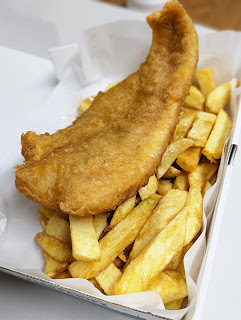Ahh…. Fish, chips and mushy peas! There is nothing more British than fish and chips. Freshly cooked, piping hot fish and chips, smothered in salt and soused with vinegar, wrapped in newspaper and eaten out-of-doors on a cold and wintry day – it simply cannot be beaten!
So how, when and where did this quintessentially British dish come about?
The potato is thought to have been brought to England from the New World in the 17th century by Sir Walter Raleigh, although it is believed that the French invented the fried potato chip.
Both Lancashire and London stake a claim to being the first to invent this famous meal – chips were a cheap, staple food of the industrial north whilst fried fish was introduced in London’s East End. In 1839 Charles Dickens referred to a “fried fish warehouse” in his novel, ‘Oliver Twist’.
The populace soon decided that putting fried fish and chips together was a very tasty combination and so was born our national dish of fish and chips!
The first fish and chip shop in the North of England is thought to have opened in Mossely, near Oldham, Lancashire, around 1863. Mr Lees sold fish and chips from a wooden hut in the market and later he transferred the business to a permanent shop across the road which had the following inscription in the window, “This is the first fish and chip shop in the world”.
However in London, it is said that Joseph Malin, a Jewish immigrant, opened a fish and chip shop in Cleveland Way within the sound of Bow Bells in the 1860s.
Fish and chip shops were originally small family businesses, often run from the ‘front room’ of the house and were commonplace by the late 19th century.
Through the latter part of the 19th century and well into the 20th century, the fish and chip trade expanded greatly to satisfy the needs of the growing industrial population of Great Britain. In fact you might say that the Industrial Revolution was fuelled partly by fish and chips!
The development of the steam powered trawler brought fish from all over the North Atlantic, Iceland and Greenland and the steam railways allowed easy and fast distribution of the fish around the country.
Fish and chips became so essential to the diet of the ordinary man and woman that one shop in Bradford had to employ a doorman to control the queue at busy times during 1931. The Territorial Army prepared for battle on fish and chips provided in special catering tents erected at training camps in the 1930’s.
The fish and chip shop was invaluable in supplementing the family’s weekly diet in the Second World War, as fish and chips were among the few foods not to be rationed. Queues were often hours long when the word went round that the chip shop had fish!! On one occasion at Brian’s Fish and Chip Shop in Leeds, when fish was scarce, homemade fish cakes were sold – along with the confusing, and slightly worrying, warning: “Patrons: We do not recommend the use of vinegar with these fish cakes”!!
So are fish and chips any good for us, nutritionally? Fish and chips are a valuable source of protein, fibre, iron and vitamins, providing a third of the recommended daily allowance of vitamins for men and nearly half for women. The famous English nutritional scientist Magnus Pyke cited it as an example of a traditional dish once jeered at by food snobs and even censured by health food devotees but now fully appreciated as a nutritious combination.
In 1999, the British consumed nearly 300 million servings of fish and chips* – that equates to six servings for every man, woman and child in the country. There are now around 8,500 fish and chip shops* across the UK – that’s eight for every one McDonald’s outlet, making British Fish and Chips the nation’s favourite take-away.
At Rabs we take extra care selecting our produce from the different types and fillet of fish to the variety of potatoes. If we wont eat it we wont serve it… it is as simple as that.
About Rabs Fish and Chips
Rabs Fish and Chips is brought to you by 2 local lads… Rob and Abs.
Rob and Abs have a lot of knowledge of different cuisines. Abs is a foodie who loves trying new flavours and rustling up his own dishes and Rob has been running Bumbas in Rawtenstall for the past decade.
Both Rob and Abs are born and bred local lads and come from families of foodies. Both have a love for new flavours but know when to leave a traditional dish alone in its original glory. They’ve always wanted to open their own place so when this place came up they had to snap it up. Rob and Abs have created you a menu which you can reminisce with the flavour of chippies from the bygone days along with a specials menu called the “7 fishes of the world,” which offers the same fish and chips as you are used to, but with a twist.
Give them a go and see what you think.
*Source: The National Federation of Fish Friers
First published: August 21st, 2015 by www.historic-uk.com

